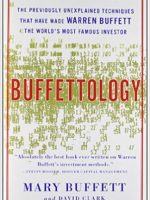The Creature from Jekyll Island Audiobook by G. Edward Griffin
Dive into “The Creature from Jekyll Island” by G. Edward Griffin—a thought-provoking exploration of the Federal Reserve System narrated by Mark Bramhall. Unpack complex themes surrounding fiat money, inflation, and geopolitical manipulation while questioning established norms in today’s economy. Available for free listening on Ezaudiobookforsoul.com.
It was a rainy Sunday afternoon, the kind that invites introspection and a deep dive into the murky waters of economic theory. As I settled into my favorite armchair, wrapped in a cozy blanket with a steaming cup of herbal tea beside me, I hit play on “The Creature from Jekyll Island” by G. Edward Griffin. The narrator, Mark Bramhall, began to weave his tale—a rich narrative that felt almost conspiratorial, pulling me into an intricate world where money is not merely currency but a tool wielded by the powerful.
From the very first chapter, I found myself grappling with profound questions about our financial system. Griffin’s articulation of fiat money—money created from nothing—was eye-opening. It made me question how many of us truly understand the implications of inflation and the often hidden taxes it imposes on those with the least. As someone who has always been curious about the undercurrents of economics, I was captivated by Griffin’s claim that this system disproportionately affects those who are already struggling. It resonated deeply with my own experiences in navigating financial challenges in a world that seems rigged against the average person.
Listening to Bramhall’s steady voice as he unraveled complex ideas like the Mandrake Mechanism and fractional reserve banking felt like having an enlightening conversation with a wise mentor. His tone made challenging content accessible and engaging, transforming what could have been a dry lecture into an invigorating exploration of systemic issues that have persisted for generations.
One particularly striking aspect of the audiobook was Griffin’s argument regarding the Rothschild Formula—a term that encapsulates centuries of geopolitical manipulation by powerful families. It sent chills down my spine to think about how history is often shaped by these unseen hands pulling strings behind the scenes. This theme of manipulation echoed throughout my life; how many times had I seen powerful interests dictate policies that seem disconnected from public welfare? This realization fueled my anger but also my desire for change.
As I continued listening, I found myself nodding along in agreement when Griffin laid out his seven reasons for abolishing the Federal Reserve. Each point struck at my core—its inability to provide economic stability, its operation primarily for private interests, and its contributions to inflation felt both familiar and urgent. This audiobook stirred up a sense of activism within me; it awakened a need to challenge the status quo and engage in conversations about our financial future.
While listening for over 24 hours may seem daunting, Bramhall’s engaging narration kept me hooked. He infused energy into each segment, ensuring that even during dense sections discussing economic theories, I remained invested in his delivery. The blend of factual information with narrative storytelling made it feel less like learning and more like uncovering hidden truths.
“The Creature from Jekyll Island” is not just an audiobook; it’s an invitation to rethink our relationship with money and power. It challenged me to scrutinize not only external systems but also my own beliefs about wealth and equity. In today’s tumultuous climate where financial literacy is paramount, this work serves as both a warning and an enlightening guide.
Whether you’re well-versed in economics or just starting your journey into understanding global finance, Griffin’s work will leave you questioning everything you thought you knew about money. So grab your headphones, find a comfortable spot (preferably one where you can sip tea while contemplating your newfound insights), and dive deep into this transformative narrative.
| Author | |
|---|---|
| Narrator | |
| Language |
- Soulful_ExplorationThe Creature from Jekyll Island Audiobook
- 01The Creature from Jekyll Island Audiobook
- 02The Creature from Jekyll Island Audiobook
- 03The Creature from Jekyll Island Audiobook
- 04The Creature from Jekyll Island Audiobook
- 05The Creature from Jekyll Island Audiobook
- 06The Creature from Jekyll Island Audiobook












